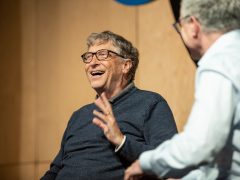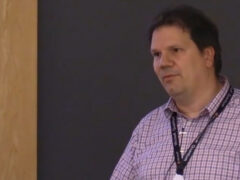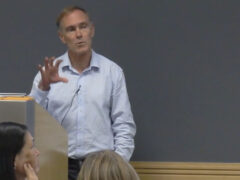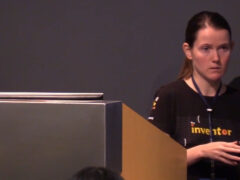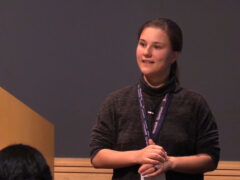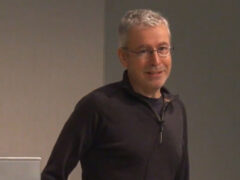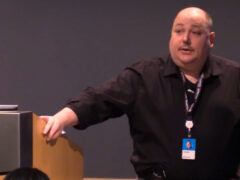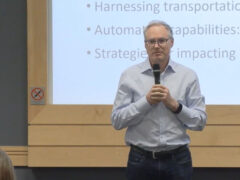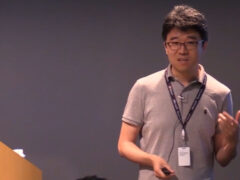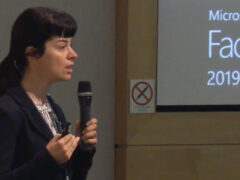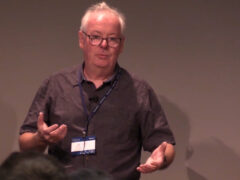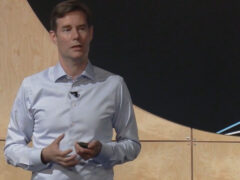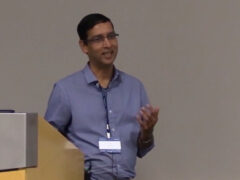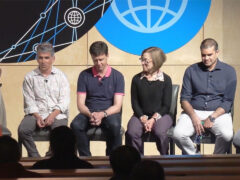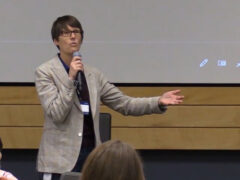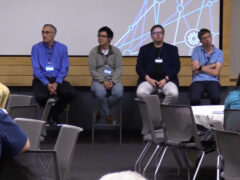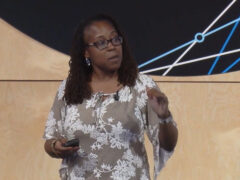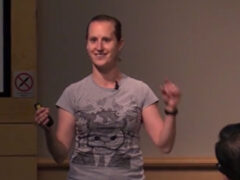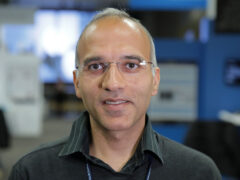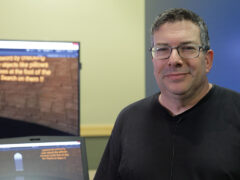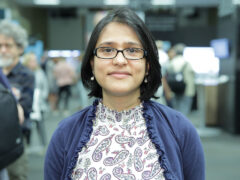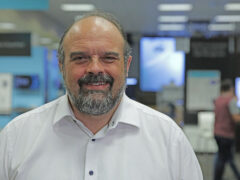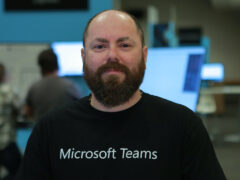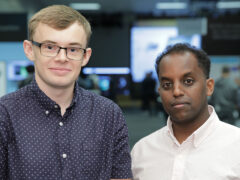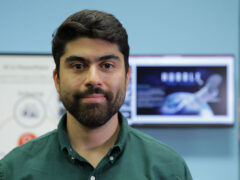Looking Over the Horizon: How Basic Research Helps Everyone
- Peter Lee and Jeannette Wing | Microsoft Research
- Faculty Summit 2013
With 13 labs worldwide, Microsoft Research is committed to advancing the state of the art in computing. In this session, Microsoft Research’s leadership team showcases current research that’s having an impact on technology, science, and society.
Speaker Details
Peter Lee joined Microsoft as a Distinguished Scientist and Managing Director of Microsoft Research Redmond (MSR-R) in September 2010. He comes to Microsoft from the Defense Advanced Research Projects Agency (DARPA) where he served as the founding director of the Transformational Convergence Technology Office. DARPA is the principal agency within the U.S. Department of Defense for research, development and demonstration of high-risk, high-payoff projects for the current and future combat force. In this role, Peter was responsible for developing and implementing the strategic vision and technical plans for a new office in support of DARPA’s mission: to maintain the technological superiority of the U.S. military and prevent technological surprise from harming national security by sponsoring revolutionary research, bridging the gap between fundamental discoveries and their military use. Prior to DARPA, Peter was a professor and head of the Computer Science Department at Carnegie Mellon University (CMU), having also served briefly as the Vice Provost for Research. He joined the CMU faculty in 1987, after completing his doctoral studies at the University of Michigan.
Peter is an active researcher, educator, administrator, and servant to the academic community. His research contributions lie mainly in areas related to the foundations of software reliability, program analysis, security, and language design. He is a former Chair of the Board of Directors of the Computing Research Association and its Government Affairs Committee. He is the author of two books, authored or co-authored more than 50 refereed papers, and has advised or co-advised 14 completed Ph.Ds. Peter has received numerous awards for his research, including the Special Interest Group on Operating Systems Hall of Fame Award for the most influential paper from OSDI; the Association for Computing Machinery’s Special Interest Group on Programming Most Influential Programming Language Design and Implementation Paper; the Allen Newell Award for Research Excellence in Computer Science for Proof-Carrying Code; and the 1994 Herbert A. Simon Award for Teaching Excellence in Computer Science.
Jeannette Wing has recently joined Microsoft Research as Vice President and Head of Microsoft Research International, with responsibilities for laboratories in India, China, and England. She was on the faculty at Carnegie Mellon (1985-2012), where she twice served as Head of the Computer Science Department and as Associate Dean for Academic Affairs; and at the University of Southern California (1983-1985). From 2007 to 2010 she was Assistant Director of the Computer and Information Science and Engineering Directorate at the National Science Foundation.
Her research focuses on the foundations of trustworthy computing, in particular on the science of security and privacy. Except for when she was at NSF, she was on Microsoft’s Trustworthy Computing Academic Advisory Board since its inception in 2003. She promotes a vision that computational thinking–an approach to problem solving, designing systems and understanding human behavior that draws upon concepts fundamental to computer science—can transform the conduct of all disciplines. She is a fellow of the American Academy of Arts and Sciences, the AAAS, the Association for Computing Machinery, and the Institute of Electrical and Electronic Engineers.
-
-
Jeff Running
-
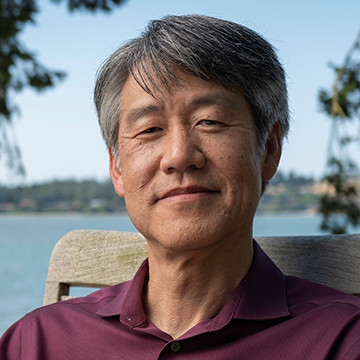
Peter Lee
President, Microsoft Research
-
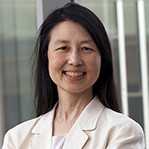
Jeannette Wing
Corporate Vice President, Microsoft Research
-
-
Series: Microsoft Research Faculty Summit
-
-
-
Cars, Computing and the Future of Work: Specific topics of mutual interest
- Linda Boyle,
- Ed Doran,
- John Lee
-
-
-
Crowd, Cloud and the Future of Work: Updates from human AI computation
- Pietro Michelucci,
- Lucy Fortson,
- Franco Pestilli
-
-
Cars, Computing and the Future of Work: A UW & MSR Workshop: Welcome and Overview of Projects
- Linda Boyle,
- Ed Doran,
- Eric Horvitz
-
-
Crowd, Cloud and the Future of Work: Welcome and Updates
- Besmira Nushi,
- Ece Kamar,
- Kori Inkpen
-
Empowering People to Achieve More: How Useful a Concept is Productivity?
- Brendan Murphy,
- Yvonne Rogers,
- Steve Whittaker
-
Keynote - The Future of Work And the Power of Data
- Johannes Gehrke
-
Productivity in Software Development
- Neel Sundaresan,
- Margaret-Anne Storey,
- Prem Kumar Devanbu
-
Artificial Emotional Intelligence, Social Systems, and the Future of Collaboration
- Mary Czerwinski,
- Mark Ackerman,
- Gloria Mark
-
Workers of the World, Connect! Tech Innovations and Organizational Change for the Future of Work(ers)
- Mary Gray,
- Jamie Woodcock,
- Louise Hickman
-
Increasing AI Programmer Productivity
- Markus Weimer,
- Sarah Bird,
- Ce Zhang
-
Human-AI Collaboration for Decision-Making
- Besmira Nushi,
- Ayanna Howard,
- Jon Kleinberg
-
Future of Spreadsheeting
- Ben Zorn,
- Felienne Hermans,
- Daniel Barowy
-
Program Synthesis meets Notebooks
- Sumit Gulwani
-
Accessible Virtual Reality
- Eyal Ofek
-
Calendar.help: A Virtual Meeting Scheduling Assistant
- Pamela Bhattacharya
-
Visual Studio IntelliCode
- Mark Wilson-Thomas
-
Microsoft Teams: Collaborate with Any Researcher Anywhere
- Jethro Seghers
-
Project Alava: Programming Webs of Microcontrollers
- James Devine,
- Teddy Seyed
-
AI in PowerPoint
- Kostas Seleskerov

